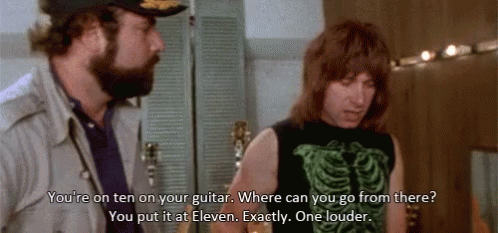California, as the late Tupac Shakur put it, knows how to party.
Tupac, of course, was right — but as the U.S. bishops arrive in the Golden State this week, they’re not coming to party, but for a week-long retreat in San Diego.
Talks will focus on unity and collegiality, because the retreat comes at a fractious moment for the American bishops. Disagreement among the episcopate of California has become a particular flashpoint in recent weeks.
And as they settle in for a retreat on unity, some bishops have shown a growing impatience with the veiled modes of disagreement they have customarily preferred — with a few opting for more transparent ways of expressing serious discord on critical issues.
The California retreat is technically a “special assembly” of the USCCB – the observance of a custom that sees the conference’s spring meeting used once every three years as a week of spiritual formation and fraternal engagement for the bishops.
The last such “special assembly” was to be held in June 2019 – but it was preempted by a papally-mandated retreat for all bishops the January before. In light of the unresolved issues surrounding the Theodore McCarrick scandal, the June 2019 meeting was transitioned into a working meeting. That makes six years since a USCCB-directed “special assembly retreat” — the last such meeting, in June 2016, was in Orange, California.
The 2022 meeting is said to focus on fraternity, ecclesial communion, collegiality, synodality, and even friendship among bishops. It will be preached by Archbishop Anthony Fisher of Sydney, Australia.
Those debates were the public phase of a set of disagreements that had been simmering for longer — as bishops have in recent years taken differing approaches to interpreting the pontificate of Pope Francis, and to engaging with the hyper-partisan American political leadership.
To frame all of that in the music of Tupac – since that’s the clever motif of this analysis – the bishops don’t have an East Coast/West Coast feud, but they do have factional camps at odds with one another, in rivalries that often intertwine personal and stylistic differences with markedly different ways of seeing and talking about the world they occupy.
While there are plenty of bishops who fall somewhere in the middle, the impact of intra-episcopal division is seen frequently in the projects and initiatives of the episcopal conference.
Some of the most recent debates were squashed with the passage of a Eucharistic document in November, but they did not go away. And when the bishops conducted their November 2021 plenary assembly with extra days of prayer and a few closed door sessions, some said that a new way of doing things could launch a new era of unity.
And when one of the bishops who has most vocally disagreed with Cordileone – Robert McElroy of San Diego – became a cardinal two weeks later, the nomination was taken in the media as a resounding papal salvo in the bishops’ intrareligious dialogue.
For their parts, Cordileone and McElroy have been seen as mostly polite interlocutors, despite disagreement.
But it was Oakland’s Bishop Michael Barber, SJ, who turned episcopal disagreement “up to eleven” last weekend.

In a June 12 Wall Street Journal report
Barber noted that McElroy speaks out on other political issues, including migration, but is reluctant to speak about abortion, the Journal reported.
Oakland’s bishop told the Journal that Cordileone was “prophetic,” and said that the San Francisco archbishop and his San Diego counterpart embody “two forces in the Church right now” — with McElroy representing the concerns of Pope Francis, and Cordileone stressing the approaches of Pope St. John Paul and Pope emeritus Benedict XVI.
Barber words are not unremarkable. It was until recently relatively rare that bishops would so concretely – or sharply – criticize a brother bishop in the media. While the practice has become more common, bishops still generally tend to be conflict averse, to emphasize in public a reluctance to second guess the ministerial choices of a fellow bishop.
The bishop of Oakland apparently expressed no such reluctance. The lines he drew were unambiguous.
While five days of prayer and fellowship may well be good for the bishops, it would be a tall order to expect their retreat to overcome the disagreements that have become pronounced in recent years — especially with the division in California so sharply and recently articulated.
In all likelihood, Barber’s comments will not be addressed directly during the retreat. Talks will likely stay at the level of generalities, and in the matter of episcopal etiquette, even McElroy will probably avoid raising the remarks to his fellow Californian. They will be discussed in side conversations, at the bar, and over dinner — but almost certainly in conversations among like-minded shepherds, who will offer affirmation, or tongue clicking disappointment, depending on the make-up of the circle discussing them.
If they represent the state of affairs for the American episcopate, few will be so gauche as to actually look the remarks in the eye.
Still, whatever comes of their retreat, Barber has telegraphed what the engagement of the American episcopate in months to come might look like — direct critiques, clear disagreement, no hesitation to lay that out directly.
And even while some of current disputes are unresolved, more are coming.
All of those issues are ripe for substantive points of disagreement. Which means that while Barber is the most recent bishop – but not the only – to try a more direct way of hashing things out, it is unlikely he’ll be the last.
As Tupac so clearly put it, “Welcome everybody to the wild, wild west.”
Editor’s note
Credit: Source link




